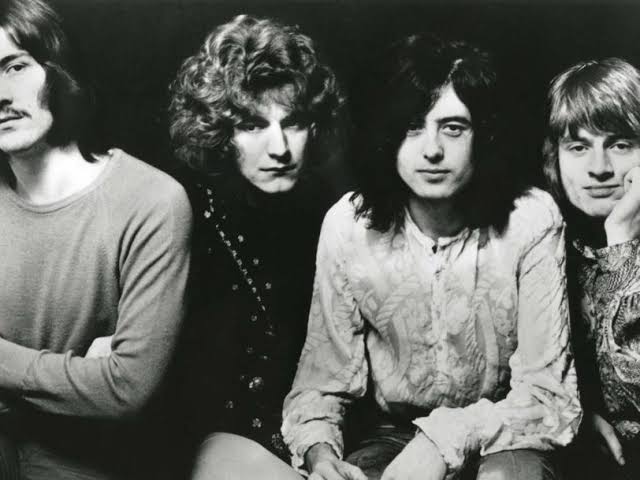
London, UK – October 26, 1968 (Flashback) – The genesis of one of rock music’s most enduring and influential bands, Led Zeppelin, was a story born from the dying embers of another iconic group, The Yardbirds, and fueled by the vision of a determined guitarist named Jimmy Page. The year was 1968, a time of musical evolution and burgeoning counter-culture, and within the smoky confines of London’s music scene, the seeds of a sonic revolution were being sown.
Jimmy Page, a seasoned session musician who had reluctantly joined The Yardbirds in 1966, found himself at a crossroads as the band began its slow disintegration. Despite featuring guitar legends like Eric Clapton and Jeff Beck before him, Page’s tenure hinted at a different direction, even a potential “supergroup” featuring twin guitar firepower that ultimately never fully materialized. Yet, the idea of forging his own musical destiny simmered beneath the surface.
As The Yardbirds’ final commitments loomed in the summer of 1968, Page, entrusted with assembling a new lineup alongside bassist Chris Dreja, embarked on a recruitment mission that would inadvertently change the course of rock history. His first crucial acquisition was a charismatic and powerful vocalist named Robert Plant. Page, captivated by Plant’s raw talent while he fronted the band Band of Joy, found a kindred spirit in their shared passion for blues and folk traditions.
Plant, in turn, brought his own secret weapon: a thunderous and uniquely gifted drummer named John Bonham, a former bandmate from Band of Joy. Though Bonham initially required some convincing to join this new venture, his eventual commitment would prove to be a cornerstone of Led Zeppelin’s unmistakable sound, a percussive force unlike any other.
Completing this formidable quartet was the versatile and experienced bassist and keyboardist John Paul Jones. A highly respected session player who had crossed paths with Page on numerous occasions, including arranging strings for The Yardbirds, Jones proactively sought out the opportunity to join Page’s nascent project. His eagerness and musical acumen would add crucial depth and complexity to the band’s sonic tapestry.
Initially fulfilling The Yardbirds’ remaining tour dates, the newly formed foursome tentatively adopted the moniker “The New Yardbirds.” Their debut performance under this temporary name took place on October 4, 1968, at the Mayfair Ballroom in Newcastle upon Tyne, marking the first public unleashing of their potent and evolving sound, a raw fusion of blues grit, rock energy, and folk-infused melodies.
It was during this period that the now-legendary name “Led Zeppelin” took flight. The oft-repeated anecdote credits a conversation involving members of The Who, particularly drummer Keith Moon, who reportedly quipped that Page’s new band would plummet “like a lead zeppelin” – British slang for an utter failure. Ironically, this dismissive remark became the unlikely inspiration for a name that would come to symbolize soaring musical innovation. The band reportedly dropped the “a” in “lead” to avoid mispronunciation, ultimately christening themselves Led Zeppelin with their first official performance under this iconic banner on October 25, 1968, at the University of Surrey in Battersea.
Even before their official rebranding, the nascent Led Zeppelin had already begun laying down the tracks for their debut album, their immediate musical chemistry evident from their very first rehearsals. Within a remarkably short timeframe, less than a year after their formation, the band secured a pivotal six-album deal with Atlantic Records, a contract that crucially granted them significant artistic autonomy – a freedom that would prove instrumental in their groundbreaking creative development.
The story of Led Zeppelin’s beginning is a testament to the vision of one guitarist, the serendipitous convergence of four extraordinary talents, and the transformative power of shared musical passion. From the ashes of a fading rock institution rose a new behemoth, initially conceived as a potential flop, that would ultimately redefine the landscape of rock music and embark on a legendary journey that continues to resonate with generations of listeners. The lead balloon, against all odds, had taken to the sky, ready to conquer the world with its unique and unforgettable sound.
Be the first to comment